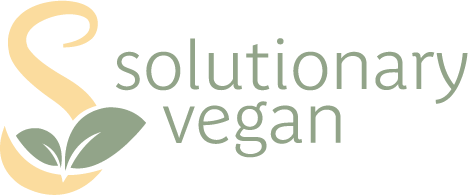Ep 1: Zoe Weil, Institute for Humane Education: What’s a solutionary?
Ep 1: Zoe Weil, Institute for Humane Education
Subscribe: Apple Podcast | Spotify | Amazon Music | YouTube
“A solutionary is somebody who can identity unjust, unsustainable and inhumane systems and then devise solutions that do the most good and least harm for everyone– for all people for animals and for the environment.”
In this episode…
The concepts we discuss in this episode are the framework for our podcast. Zoe defines “solutionary” and explains how this methodology can change the world in big - impactful - sustainable ways. She talks about humane education, her method of advocacy, and how education is one system that affects all the others. We also dig into (plant-based) meaty questions about vegan misanthropy, balance, how we sometimes, in our passion to do good, cause harm, different modes of advocacy, and why we should care about injustices toward human animals and the environment.
Guest
Zoe Weil is the co-founder and president of the Institute for Humane Education (IHE) and is considered a pioneer in the comprehensive humane education movement that educates people to create a world where all humans, animals, and nature can thrive. Zoe created IHE’s online M.Ed., M.A., and graduate certificate programs, offered through an affiliation with Antioch University, as well as IHE’s acclaimed workshops and Solutionary Micro-credential Program.
Zoe is the author of seven books including The World Becomes What We Teach: Educating a Generation of Solutionaries, Nautilus Silver Medal winner, Most Good, Least Harm, The Power and Promise of Humane Education, and Above All, Be Kind: Raising a Humane Child in Challenging Times. She has also written books for young people, including Moonbeam Gold Medal winner, Claude and Medea, about 12-year-old activists inspired by their teacher to right wrongs where they find them, and So, You Love Animals: An Action-Packed, Fun-Filled Book to Help Kids Help Animals. She has written numerous articles on humane education and humane living and has appeared frequently on radio as well as television.
In 2010, Zoe gave her first TEDx talk “The World Becomes What You Teach” which became among the 50 top-rated TEDx talks within a year. Since then she has given five other TEDx talks: “Solutionaries” “Educating for Freedom” “How to be a Solutionary” “Extending our Circle of Compassion” and “How will you answer this question?”
Zoe speaks regularly at universities, conferences, and schools across the United States and Canada. She is a frequent keynote speaker, including at international teachers’ conferences in China and Mexico. She has served as a consultant on humane education to people and organizations around the world and has served on the board of directors of the Heroic Imagination Project and HEART, and as a steward at The Good Life Center.
In 2012 Zoe debuted her One-woman show, “My Ongoing Problems with Kindness: Confessions of MOGO Girl,” bringing humane issues to communities through entertainment. In 2020 she appeared on the Apple TV+ series “Dear …” Episode 7 on Jane Goodall. In 2017 she was named one of Maine Magazine’s 50 independent leaders transforming their communities and the state. In 2016 Good Housekeeping included her in their women over fifty “groundbreakers shaking the world.” In 2012 she was honored with the Women in Environmental Leadership award at Unity College, and her portrait was painted by Robert Shetterly for the Americans Who Tell The Truth portrait series. In 2019, she received the Distinguished Alumnae Achievement Award from the Nightingale-Bamford School. Zoe was inducted into the Animal Rights Hall of Fame in 2010.
Zoe received a Master’s in Theological Studies from Harvard Divinity School (1988) and a Master’s and Bachelor’s in English Literature from the University of Pennsylvania (1983). In 2015 she was awarded an honorary doctorate from Valparaiso University. Zoe is certified in Psychosynthesis counseling, a form of psychotherapy which relies upon the intrinsic power of each person’s imagination to promote growth, creativity, health, and transformation.
Calls to action
Find a campaign organization that works for you. Reach out if you need a resource. Support FFAC by connecting them with a high school or college teacher in your community.
Support a student advocate through the FFAC Advocacy Institute.
Donate to FFAC.
Sign up for FFAC’s email list and/or follow on social media.
Share this episode!
Links from episode
IHE Website: https://www.humaneeducation.org/
IHE Graduate Programs: https://www.humaneeducation.org/graduate-programs/
For Educators: https://www.humaneeducation.org/for-educators/
Sexy Fit Vegan Podcast: https://sexyfitvegan.com/podcast
Videos
1 min. This Hand
90-second Let’s Educate the Solutionary Generation,
3.5 min. “Bring the Solutionary Program to your School)
1 min. Zoe’s bad ass burpee challenge
Social Media:
https://www.facebook.com/InstituteforHumaneEducation
https://www.instagram.com/humaneeducation/
https://twitter.com/humaneeducation
https://www.pinterest.com/humaneeducation/
https://www.youtube.com/channel/UCBKjpGm1rTsD3aRIH_URpTg
https://www.linkedin.com/company/institute-for-humane-education/
Music: The Wake Up Experience, Nu Human
